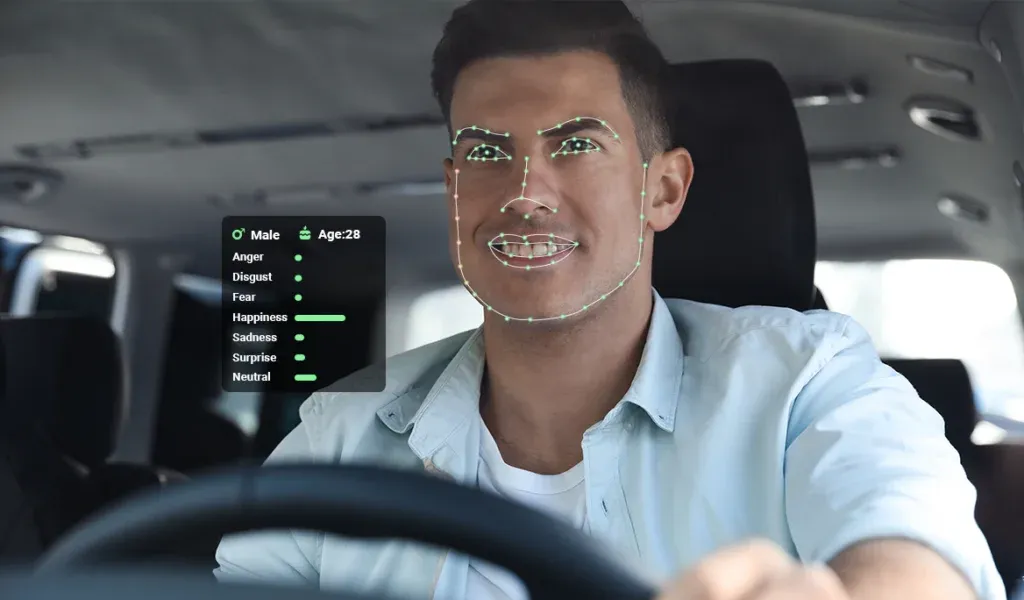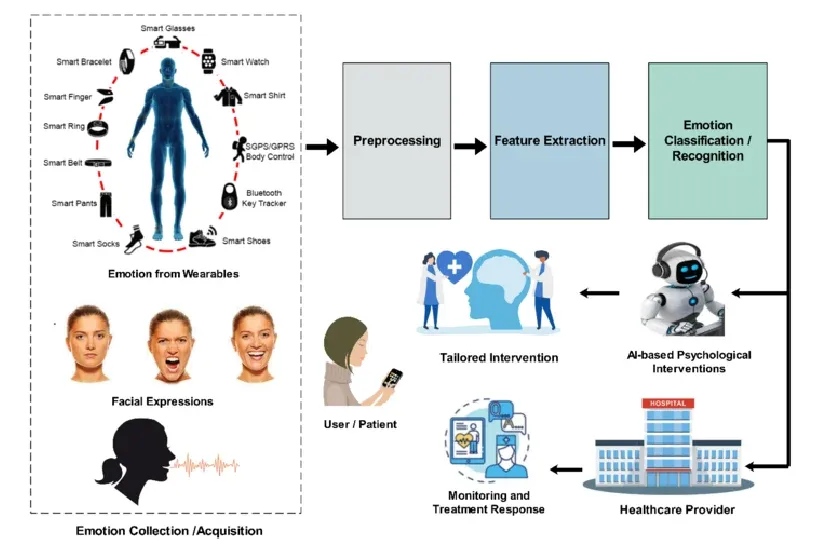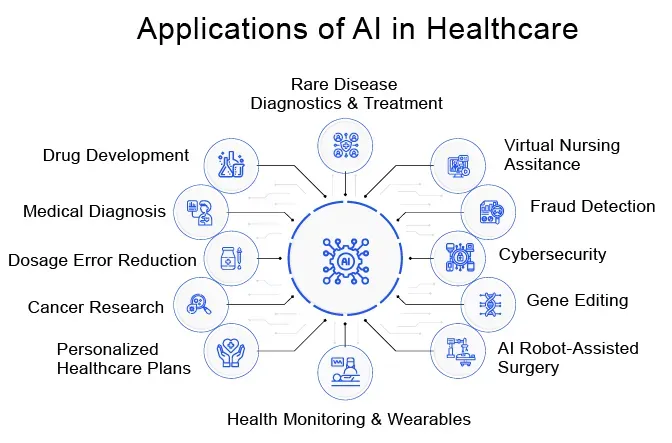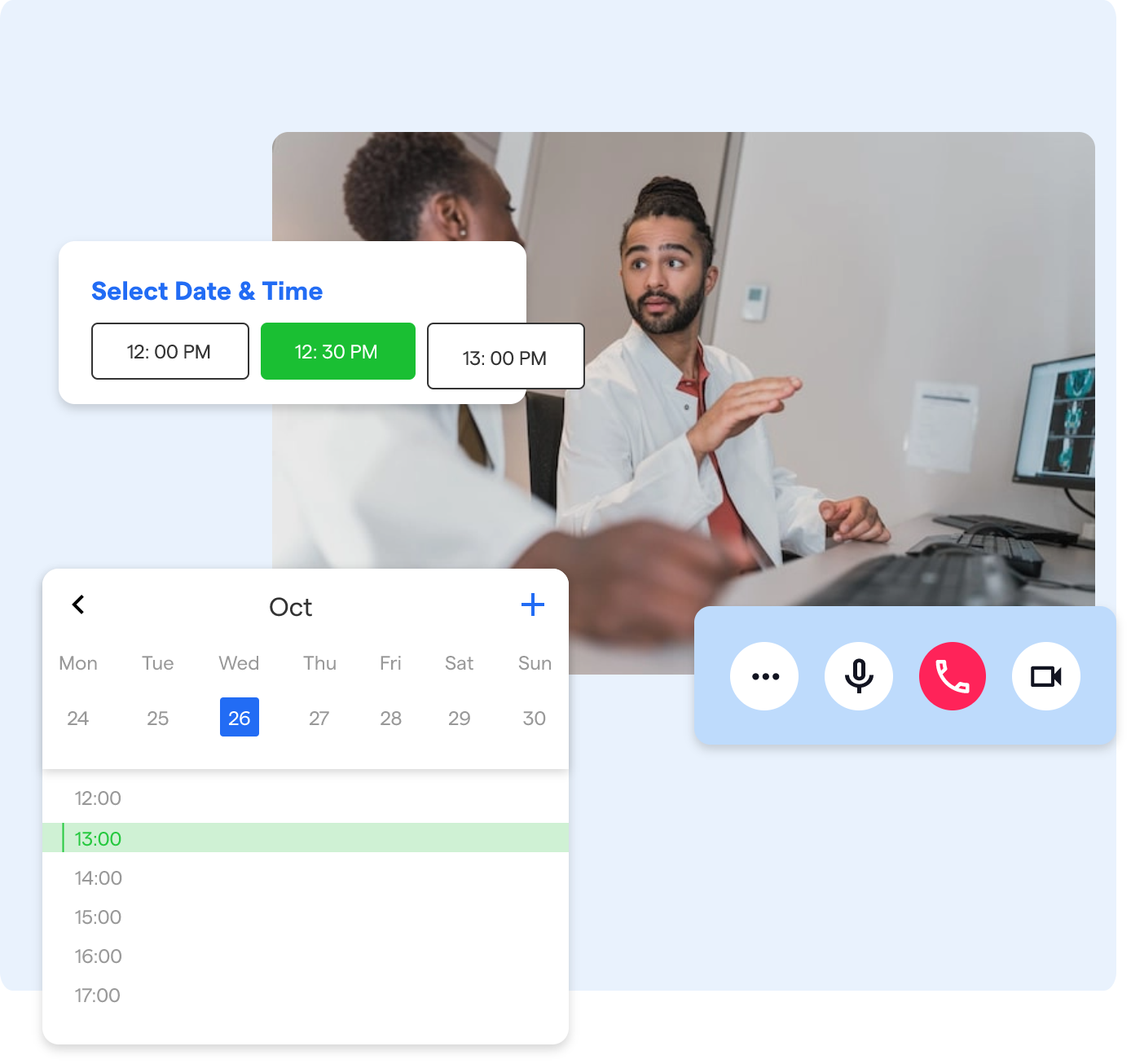Introduction
Welcome to a world where technology meets emotions, and compassion goes digital! In healthcare, emotional support plays a vital role in the well-being and recovery of patients.
But what if we told you that artificial intelligence (AI) could lend a virtual hand in providing even better emotional support?
The market for artificial intelligence in healthcare, which was estimated to be worth USD 15.4 billion in 2022, is anticipated to rise at a CAGR of 37.5% from 2023 to 2030.
Enter Emotion AI, the cutting-edge technology that deciphers and responds to human emotions. Emotion detection AI is revolutionizing the healthcare landscape with its ability to analyze facial expressions, voice tone, and other behavioral cues.
This blog will explore the fascinating intersection of Emotion AI and healthcare. We will uncover how it enhances emotional support and transforms patient experiences. Get ready to dive into it, where technology embraces our feelings with open circuits!
What is Emotion AI?
Emotion AI applies artificial intelligence techniques to recognize, interpret, and respond to human emotions.
Emotion AI algorithms can identify emotions like happiness, sadness, anger, and fear. It does it by analyzing various signals, including facial expressions, vocal tones, gestures, and physiological data.
These algorithms are trained on vast datasets to understand and differentiate between emotional states.

How does Emotion AI work in healthcare?
In healthcare settings, Emotion AI systems employ various modalities to capture and analyze emotional cues. Facial recognition technology tracks facial expressions, mapping them to corresponding emotions.
Voice analysis algorithms detect pitch, tone, and speech pattern changes to infer emotional states.
Additionally, sensors and wearables can collect physiological data like heart rate and skin conductivity. It provides further insights into a patient's emotional well-being.

Why is emotional support crucial in healthcare?
Healthcare experiences can be overwhelming and emotionally challenging for patients. Emotional support is vital in providing comfort, reassurance, and empathy, fostering a healing environment.
Emotion detection AI can alleviate anxiety, reduce stress, and improve patients' overall experience and satisfaction with their care.
Challenges Faced by Patients and healthcare providers
Various factors contribute to the challenges patients and healthcare providers face in delivering emotional support. Some common challenges include:
Limited time and resources
Healthcare providers often need more time to address emotional needs due to busy schedules and high patient loads. Limited resources may restrict the availability of mental health professionals.
Stigma and communication barriers
Many patients hesitate to express their emotions due to the stigma associated with mental health. Language barriers or cultural differences can impede effective communication, hindering emotional support.
Suggested Reading:
Applications of Emotion AI in Healthcare
Emotion detection AI is transforming healthcare by enhancing emotional support across various applications. Let's explore some critical areas where Emotion AI is making a significant impact.

Emotional Analysis in patient care
Emotions play a critical role in healthcare, often influencing treatment outcomes, patient adherence, and overall satisfaction.
Recognizing and addressing these emotions is becoming increasingly important, leading to the rise of emotional analysis in patient care.
Detecting and monitoring patient emotions
Emotion AI systems can analyze facial expressions, vocal tone, and physiological data to detect and monitor patient emotions.
This technology can provide real-time insights into a patient's emotional well-being. It allows healthcare providers to intervene promptly and provide appropriate support.
Improving patient engagement and satisfaction
By personalizing interactions and tailoring emotional support to individual needs, Emotion AI can enhance patient engagement and satisfaction.
Chatbots and virtual assistants equipped with Emotion AI can simulate empathetic conversations. It It creates a more compassionate and comforting healthcare experience.
Emotional support for healthcare professionals
Facing demanding workloads, witnessing suffering, and dealing with constant pressure can take a toll on their mental and emotional well-being

Identifying and addressing caregiver burnout
Emotion detection AI systems can detect signs of emotional distress among healthcare professionals. These systems can alert supervisors or provide resources to prevent and address caregiver burnout by monitoring stress levels, facial expressions, and vocal cues.
Enhancing communication and empathy
Emotion AI tools can assist healthcare providers in understanding and empathizing with patients' emotional states.
By interpreting emotional cues, providers can tailor their communication approaches to establish rapport, build trust, and provide more effective emotional support.
Conclusion
Emotion detection AI is transforming healthcare by enhancing emotional support for patients and healthcare providers.
Emotion AI can transform patient care and improve therapeutic results. It can provide a more compassionate and empathic healthcare environment by deciphering and responding to human emotions.
With responsible implementation, continued advancements, and a focus on ethics, Emotion AI can pave the way for a future where technology and emotions coexist harmoniously, providing enhanced emotional support in healthcare like never before.
Are you ready to embrace the future of patient care? Look no further than BotPenguin, the ultimate healthcare chatbot designed to transform the way you deliver medical services.
With its cutting-edge technology and unwavering commitment to improving patient experiences, BotPenguin is set to revolutionize the healthcare industry in 2023 and beyond.
Frequently Asked Questions (FAQs)
How does Emotion AI enhance emotional support in healthcare?
Emotion AI can analyze facial expressions, tone of voice, and other cues to understand patients' emotions.
It enables personalized emotional support and helps healthcare providers offer empathy and comfort.
Can Emotion AI replace human interaction in providing emotional support?
Emotion AI can complement human interaction but should not replace it entirely.
It can augment emotional support by providing additional insights and tools for healthcare professionals to better understand and assist patients.
Is Emotion AI effective in detecting mental health conditions?
Emotion AI can assist in detecting potential mental health conditions by analyzing emotional patterns.
However, it should be used as a supportive tool, and a professional diagnosis should always be sought.
How does Emotion AI protect patient privacy and data?
Emotion AI prioritizes patient privacy and data security. Providers should adhere to privacy regulations like HIPAA, ensuring that patient information is encrypted, stored securely, and only accessed by authorized personnel.
Can Emotion AI be integrated into telehealth platforms?
Yes, Emotion AI can be integrated into telehealth platforms, allowing healthcare providers to assess patients' emotions remotely.
This integration enhances virtual consultations by providing emotional insights and support.


